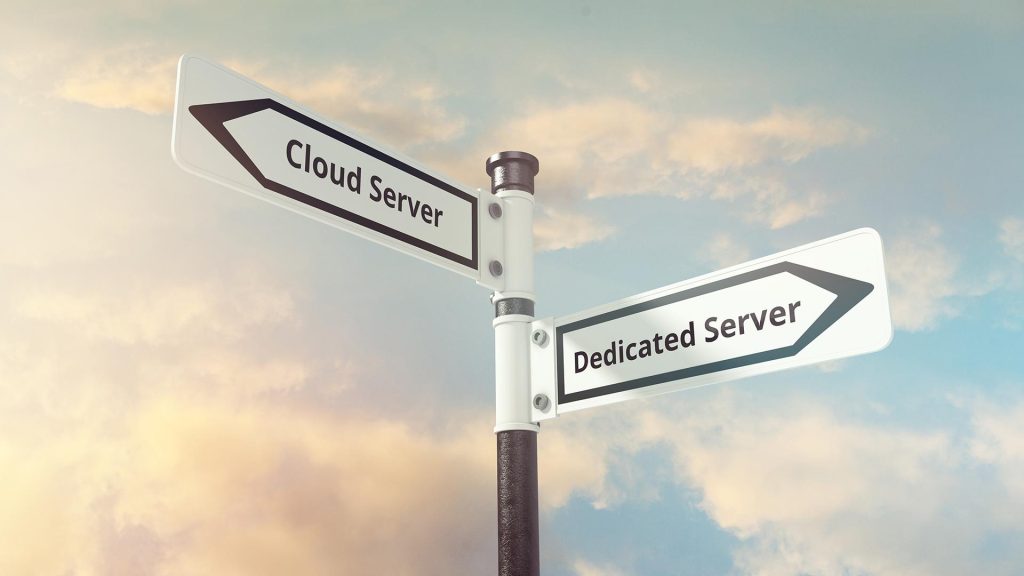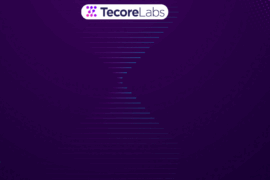Planning to start your own website or change your business hosting has always been a crucial decision. Between two popular hosting options, cloud server vs dedicated server, you may have to make a choice while you’re just getting started.
Both cloud and dedicated servers offer astounding performance and uptime. But which is the best option for your company? In order to have a win-win situation for your business, it’s crucial to take into account the key difference between cloud server and dedicated server.
This article provides you with all the information you need to choose wisely and locate among the cloud server vs dedicated server that best suits your business requirements and spending limits. Also, we go over the benefits of using a cloud server, as most organizations are now having trouble picking between the two.
Let us start with the fundamentals of cloud computing and dedicated servers before we go ahead.
What is Cloud Server?
Cloud servers are similar to traditional servers, but they are hosted in the cloud and can be accessed over the internet. This means that the hardware and software used to host your website or application are owned by a third party, i.e., a cloud hosting provider, instead of you.
Cloud servers spread across all the data centers over the world. The main benefit of this is that you don’t have to worry about maintaining it or installing new software updates on your own.
With a similar level of control, security, and performance provided by the dedicated servers, you only pay for your storage space and have the flexibility to increase or decrease your web space according to your requirements. Various small and medium-sized organizations dealing with varied workloads and demands prefer cloud servers to meet their requirements smoothly and efficiently.
Enhance your IT performance without incurring huge cost by moving to the cloud.
What is a Dedicated Server?
Dedicated servers are physical servers that are not shared with any other customers. They are dedicated to a single person or organization. It gives you complete control over the configuration and security infrastructure of your server.
Dedicated servers are typically used by large organizations seeking extreme control and security, but they also require high efficiency in data management.
Additionally, one has to incur a huge cost to leverage the benefits of dedicated servers and manage their data efficiently by themselves.
Difference between cloud and dedicated server

Points of comparison |
Cloud server |
Dedicated server |
Cost aspects |
Cloud servers are cost- efficient. Just pay for the space and resources you are using. Your hosting provider will handle all the expertise information required for operating the cloud. | Dedicated servers are quite expensive. Apart from the payment of space and resources, dedicated servers require expert knowledge and a dedicated team to operate and manage the dedicated servers. |
Management |
Your cloud computing service providers manage the server operations and management. Therefore, user does not have control over its management | With dedicated servers, users have full control over the server. |
Scalability |
Cloud servers are highly flexible as space and resources can be expanded or reduced according to the need. | We have dedicated hardware on a dedicated server, so we cannot change the configuration as needed. |
Deployment |
Server runs in seconds after the deployment. | Deployment takes longer time as compared to cloud. |
Reliability |
Your website instances are stored across numerous servers in the cloud. The instance of the web page will be handled by another server if a server fails or goes offline. | A single server is used in a dedicated server because several servers would cause the server to go offline if there was a major error that would affect both the server and its data. |
Customization |
It depends on the package of your cloud hosting provider. They generally provide you with limited hardware and software customization. | You can fully customize your software and hardware as per your requirement. |
Security |
Cloud service providers generally offer good security control with servers that have high security protocols. | Dedicated servers are extremely secured with the security measures hard to breach. |
Migration |
Does not require downtime with easier and faster migration. | Tricky as it requires carefully planning without causing downtime. |
Performance |
High, due to powerful bare metal servers. But can experience lag if there are too many tenants or requests being processed. | Have very high performance because of the specialized hardware support. |
Integration of tools |
You can have multiple utility tools with less expense. | To add utility tools to your server, you have to bear extra cost in dedicated servers. |
Why move to the cloud?
Moving your data, applications or software provides you with the freedom to access servers on demand, in any location, with any software you want to run. You pay only for what you use; the rest is provided by a service provider.
Also, in the rapidly changing tech world, it gives you the opportunity to upgrade faster according to the growing business needs as well as help you to overcome the limitations of the dedicated servers.
Let’s have a look at the benefits of moving your IT infrastructure to the cloud:
Lower costs
With off-site storage, hardware and software, you can scale up and down as needed to meet business demands without worrying about upfront investment.
Flexibility
The cloud allows you to easily provision new resources when needed and scale back when not required. So you always have enough resources available. This helps reduce risk. Even if something goes wrong, there’s still enough time for a fix before it becomes an issue for users.
Remote access
You can access your data from anywhere as long as you have an Internet connection. Also, you don’t need to worry about installing or maintaining additional software or hardware just to access your files.
Easier management
With a cloud provider, everything is automated so that you can instantly scale up or down depending on your needs and budgeting constraints.
How to choose the right server for your business?
Cloud server vs dedicated server ? Your choice is entirely depends on the goals and ambitions of your company. Both cloud servers and dedicated servers are acceptable since they both offer all the resources needed to run websites and online programmes.
Dedicated servers were the trend in the past, but cloud computing choices are emerging as cost-effective alternatives for developing small business software solutions.
Small businesses and SMEs may now host their websites using the same enterprise-quality services that the biggest corporations in the world use to run their internet operations at scale on a regular basis.
If you still have doubts about what you should choose, connect with our migration experts and see which server fits best for your organization.





